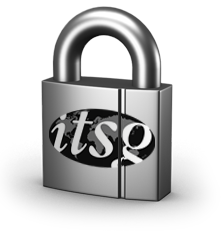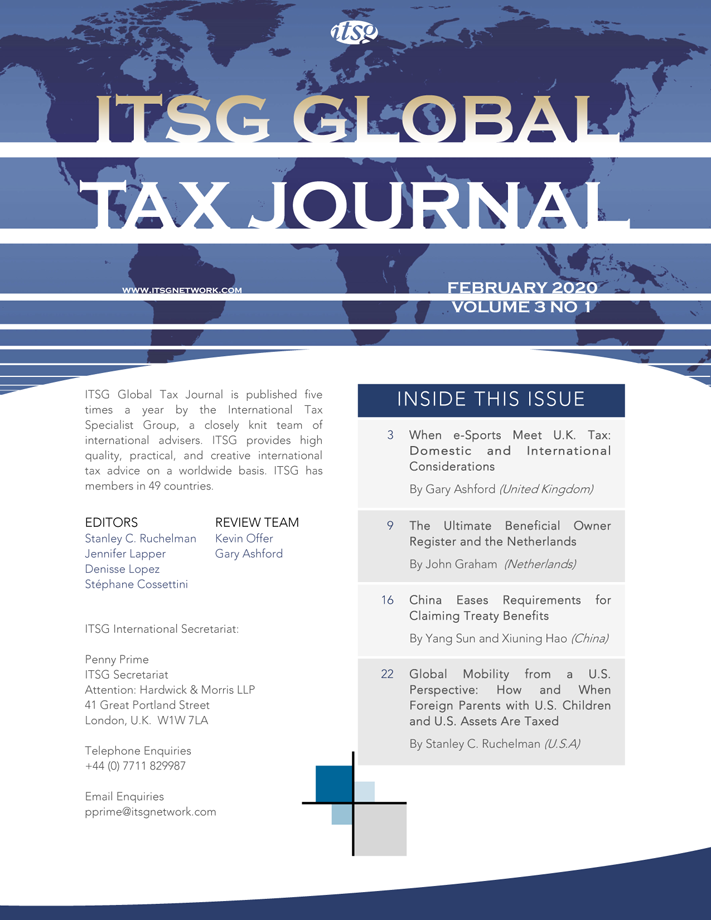On 14 October 2019, China's State Taxation Administration (S.T.A., formerly S.A.T.) issued Bulletin 35. This provides revisions to the rules for non-residents who wish to claim benefits under China's double taxation treaties. The new rules apply from 1 January 2020, replacing the administrative measures in Bulletin 60, which date from 2015. Bulletin 35 aims to standardise the administration of the entitlement to treaty benefits for non-resident taxpayers and to further simplify the declaration procedures.
BACKGROUND
The development of China's tax treaty implementation process can be divided into four stages:
- Early 1990's: The comprehensive approval system
- 2009: The partial approval system
- 2015: The comprehensive record system
- 2020: The reform of the comprehensive record system
On 25 June 2019, Premier Li Keqiang delivered a speech on planned reforms to "streamline administration, delegate power, strengthen regulation and improve services" to optimize the business environment in China. On 1 August 2019, the General Office of the State Council issued a work plan to implement the reform, which was followed by the S.T.A.'s issuance of Bulletin 35, an important step in the furtherance of this reform.
MAJOR CHANGES
One of the most significant changes made by Bulletin 35 is the simplification of the procedure to claim treaty benefits from "filing documents for record" to "retaining documents for follow-up administration" (i.e., "self-assessment of eligibility, declaration for entitlement, and retention of relevant documents for follow-up administration"). Bulletin 35 defines the responsibilities of non-resident taxpayers and withholding agents, respectively, and stipulates that tax authorities should strengthen the follow-up administration.
Simplification of procedures to claim treaty benefits
The simplification of the procedures is reflected in the changes to the declaration approach and documentation requirements outlined in the following table:
| Bulletin 60 "Filing Documents for Record" |
Bulletin 35 "Retaining Documents for Follow-up Administration" |
|
Documents for declaration |
Reporting Forms | Reporting Forms |
|
|
|
| Documents for filing | ||
|
||
Documents to be retained |
|
|
Under the prior rules set out in Bulletin 60, a non-resident recipient of Chinese-source income must submit two forms containing detailed information as well as specified documents to the appropriate tax authorities before treaty benefits are granted. This procedure can be burdensome and effectively allows the Chinese tax authorities to assess a non-resident's eligibility for treaty benefits, which, in practice, can become an examination and approval procedure.
Moving forward, Bulletin 35 will require the submission of a single Information Reporting Form, which may be submitted by the non-resident or the withholding agent. The new form will require considerably less information. Required disclosures include the taxpayer's name, Chinese taxpayer identification, tax agreement clause, and contact information. The taxpayer must also make a statement confirming that:
- The taxpayer is a resident of the other contracting state based on the laws and regulations of that state and under the relevant tax treaty.
- The principal purpose of the arrangement or transaction at issue is not to obtain treaty benefits.
- The taxpayer believes that it meets the requirements of self-assessment and takes legal responsibility for claiming treaty benefits.
- The taxpayer will retain relevant documentation for review by the Chinese tax authorities and will cooperate with the authorities.
The simplification of the procedure to claim treaty benefits should alleviate the burden on non-residents and withholding agents. At the same time, it will also mean that the tax authorities will not be able to assess eligibility for treaty benefits at the stage of filing.
Non-resident taxpayers who receive dividend, interest, and/or royalty payments should pay attention to Item 16 when filling out the Information Reporting Form. According to the alternative policies provided for in the form, the taxpayer may indicate their basis for being identified as the "beneficial owner" per (i) Article 2, (ii) Clause 1 of Article 3, (iii) Clause 2 of Article 3, or (iv) Article 4 of Bulletin of the S.A.T. on Matters Concerning "Beneficial Owners" in Tax Treaties (Bulletin of the S.A.T. [2018] No. 9). In other cases, non-resident taxpayers are required to provide a written explanation for making the determination.
Regarding the disclosures, it is worth noting that, under Bulletin 60, non-residents who made the same claim to the same tax authority with no changes to the reporting information, were exempt from submitting supporting documentation repeatedly within three years. However, there is no similar provision in Bulletin 35. Therefore, under the new policy, it appears that non-residents must (i) fill out and submit the Information Reporting Form, either to the tax authorities (if self-filing) or through a withholding agent (in withholding-at-source situations), and (ii) collect relevant materials to retain for future inspection each time they claim treaty benefits. As such, the change may increase the frequency with which non-resident taxpayers gather relevant materials (e.g., obtaining a Tax Resident Certificate from another contracting jurisdiction).
Responsibilities of non-residents and withholding agents
Another significant change made by Bulletin 35 is the delineation of responsibilities between non-residents and withholding agents (who are normally the payers). The sharing of legal responsibility has always been a focus when non-resident taxpayers enjoy treaty benefits. After the announcement of Bulletin 35, this problem persists.
The responsibilities of non-residents under Bulletin 35:
- A non-resident must complete the Information Reporting Form accurately and submit the form directly to the withholding agent.
- Where a non-resident's self-assessment is not correct (i.e., the taxpayer is not eligible for treaty benefits), the taxpayer must report the underpaid tax to the tax authorities.
- Where a non-resident has underpaid because they claimed treaty benefits to which they were not entitled (unless the underpaid tax is the fault of the withholding agent), the non-resident will be deemed to have failed to declare and pay taxes in accordance with the relevant tax rules and may be subject to penalties and interest for failure to pay on time. However, in the case of withholding at source, a non-resident taxpayer who (i) takes the initiative to report and settle the underpaid tax before being ordered to do by the tax authorities and (ii) does not fall within the circumstances set out in Clause 2 of Article 9 of the Bulletin of the S.T.A. [2017] No. 37, "shall be regarded as having made the tax payment on time". In this regard, late payment surcharges cannot be exempted under such circumstances.
- A non-resident must collect and retain documentation supporting a claim for treaty benefits to enable the Chinese tax authorities to conduct a follow-up review, and timely submit the documents to the authorities upon their request. This documentation must be kept for a prescribed time period as determined by law.
The responsibilities of withholding agents under Bulletin 35:
- The withholding agent must verify the completeness of the Information Reporting Form and conduct the tax filing accordingly.
- If a non-resident does not submit an Information Reporting Form to the withholding agent or the form is not complete, the withholding agent must withhold tax according to domestic laws without regard to any claimed treaty provisions. Failure to do so will subject the withholding agent to penalties.
- If underpaid tax is due to the withholding agent's failure to (i) file the form properly, (ii) withhold tax, or (iii) submit documents to the tax authorities, the withholding agent will be subject to penalties.
- During the follow-up administration process, the tax authorities may require the withholding agent to cooperate in the investigation and provide relevant documents within a timeline specified by the tax authorities.
Bulletin 35 clearly places the responsibility on non-residents to correctly assess entitlement to treaty benefits. It also distinguishes between the legal liabilities of non-resident taxpayers and withholding agents in the event of misapplication of the treaty by non-resident taxpayers. This should provide certainty as to the allocation of responsibilities between the parties in cross-border transactions and potentially avoid disputes. In practice, however, if the payer is responsible for the tax as agreed in the contract, the non-resident taxpayer may, in the follow-up investigation, demand compensation from the withholding agent after paying the tax. Experts suggest that when non-resident taxpayers and withholding agents sign a contract, they should make clear agreements on the duty commitment, the obligation to provide information, and the subsequent obligation to cooperate, so as to avoid disputes.
Key issues for individual non-resident taxpayers
When an individual non-resident taxpayer, namely an individual who is a tax resident of the other contracting jurisdiction under the relevant tax treaty referred to in Bulletin 35, claims treaty benefits for personal income under the articles dealing with employment, independent personal services or operating profit, director's fee, royalties, or technical service fees, that individual shall refer to the relevant provisions in the Public Notice on Individual Income Tax Treatments for Non-resident Individuals and Non-domicile Individuals (the Bulletin of the Ministry of Finance and the S.A.T. [2019] No. 35) with regard to individual income tax treatment and submit the Information Reporting Form as well as retain the relevant materials for inspection as stipulated in Bulletin 35.
The treaty rules may provide favourable treatment. For example, if the individual is a tax resident of another contracting jurisdiction, the condition for applying Formula 1 may be extended from "not more than 90 days" to "183 days". This is a more favourable time apportionment formula than under the domestic regulations. However, it will still result in that individual submitting the Information Reporting Form and retaining the relevant materials for future inspection as stipulated in Bulletin 35. One of the materials required to be retained for future inspection is the Tax Resident Certificate issued by the authority in charge of the other contracting jurisdiction. Relevant individuals should pay particular attention to this compliance requirement, otherwise they may not be able to enjoy the tax treaty benefits.
STRENGTHENING FOLLOW-UP ADMINISTRATION
Bulletin 35 empowers the tax authorities to require non-residents to produce documents supporting a claim for treaty benefits within a specified time period. In addition to the documents stipulated in Bulletin 35, the authorities may request other relevant documents.
Nevertheless, there are some issues in Bulletin 35 which need further clarification, for example:
Bulletin 35 listed some materials that have to be retained for future inspection but did not include any detailed explanation. For example, further clarification is needed on what supporting documents are required to justify beneficial ownership status under the articles relating to dividends, interest, and royalties. In this regard, a further comparative analysis of Bulletin of the S.A.T. [2018] No. 9 and its interpretation may help to better understand the requirement for supporting materials.
Under the procedures for self-filing by non-resident taxpayers, it is not clear when the late payment surcharge would commence if the eligibility for treaty benefit is denied in follow-up administration and the tax authorities go after the non-resident taxpayer for its responsibility relating to the delayed payment.
Bulletin 35 requires the withholding agent to provide relevant materials and cooperate in the investigation. It is not clear to what extent the withholding agent has to "cooperate" in order to be clear of the relevant liability. In practice, it is recommended to sufficiently communicate with the tax authorities in charge of the investigation.
As previously mentioned, Bulletin 35 defers the submission of relevant documents from the time treaty benefits are claimed to the follow-up administration stage. It is likely that the tax authorities will intensify follow-up administration on non-residents claiming treaty benefits as a result of the simplification of the filing procedure. To manage potential risks, non-residents who have claimed treaty benefits under China's tax treaties should retain relevant documents in a timely and complete manner.
CONCLUSIONS AND PROJECTIONS
Non-resident taxpayers should pay special attention to some policy details:
Bulletin 35 has added a principal purpose test whereby claims for treaty benefits may be rejected if it is reasonable that principal purpose of the arrangement or transaction is the enjoyment of those benefits. In the subsequent administration, the competent tax authorities shall apply the relevant provisions of existing general anti-tax avoidance legislation if they find it necessary to apply a bilateral principal purpose test or domestic general anti-tax avoidance rules. When enjoying the treatment of a bilateral tax agreement, non-resident taxpayers should pay attention to the reasonableness that an arrangement is artificial. They may be subject to a special tax adjustment by the authorities if the arrangement lacks reasonable commercial purpose and substance.
In the actual review process, due to the existence of various subjective or objective factors, the review time may exceed the legally stipulated 30 days. Non-resident taxpayers should make corresponding preparations.
In the case of a tax refund, non-resident taxpayers shall communicate fully with the withholding agent and obtain necessary information. If the tax authorities require non-resident taxpayers to provide information related to withholding agents, they cannot do so if there is no relationship between the withholding agent and the non-resident taxpayer. This may lead to the stagnation of the tax refund process. Therefore, non-resident taxpayers and withholding agents should communicate well in advance, and withholding agents should be fully prepared for the refund.
Regarding the requirement to retain data for follow-up administration, Bulletin 35 stipulates that the time limit shall follow the provisions of the law on Tax Collection and Administration and the detailed rules for its implementation. According to the "detailed rules for the implementation of the Tax Collection and Administration law", accounting books, accounting vouchers, statements, tax payment vouchers, invoices, export vouchers, and other tax-related information should be kept for 10 years. Experts suggest that non-resident taxpayers refer to this provision and keep the relevant information for a period of 10 years to enable follow-up administration.
With the full implementation of the new Individual Income Tax Law, especially the establishment of the cross-departmental individual tax-related infor mation sharing system and the joint incentive and disciplinary mechanism, tax authorities will be empowered to carry out follow-up administration regarding individuals with cross-border activities enjoying tax treaty benefits. Therefore, enterprises need to pay close attention to the activities of their employees and the potential impact of these activities. At the same time that they begin monitoring compliance on individual income tax matters, enterprises should also effectively manage their tax risks (e.g., regarding permanent establishments) and related costs.
Previously, one of the difficulties in managing cross-border personnel activities was the collection of accurate and timely information on the relevant individual's length of stay in China and abroad. Enterprises can now use scientific and technological methods and tools to quickly and effectively collect information and enable efficient management of personnel and risks.
While these advances offer some relief, it should be noted that non-resident enterprises continue to appeal for a more convenient tax declaration system and certainty regarding tax treatment in China. Due to the relatively principled terms of some agreements and policy guidelines, the tax authorities may provide inconsistent treatment when dealing with complex matters such as multiple shareholding structures and group payment arrangements. China has not formally established the advance tax ruling system, and non-resident taxpayers have limited channels to communicate effectively with tax authorities. Furthermore, the cancellation of pre-filing management seems to have deprived taxpayers of the opportunity to communicate with tax authorities in advance, increasing the uncertainty of relevant tax matters.

 Login
Login




















































